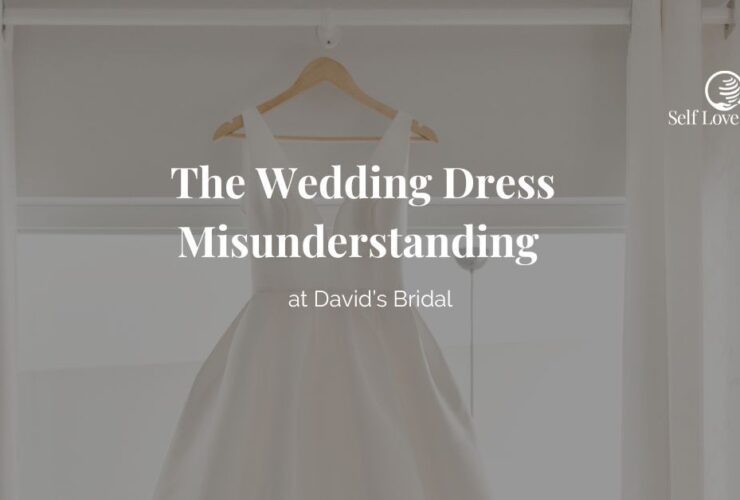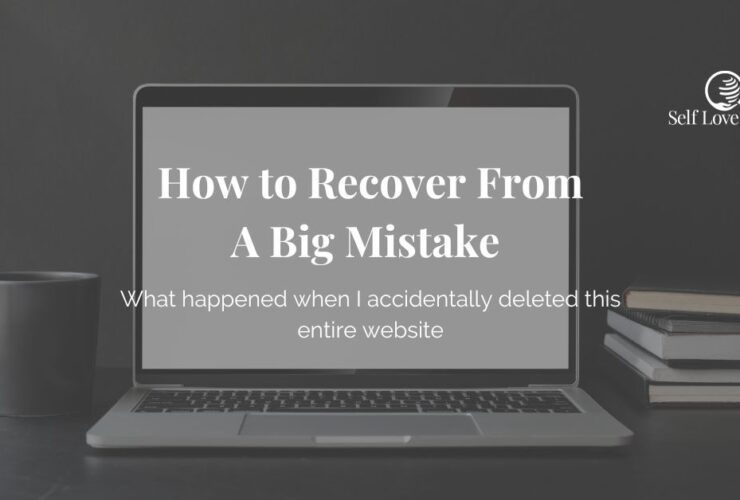10 Benefits of Being Wrong
Last week, I wrote about why there’s nothing wrong with being wrong. In the post, I said, “If we could somehow accept wrongness as a natural and integral part of our human experience, then perhaps we could be less hard on ourselves and allow our wrongness to benefit us rather than discourage us.”
This might sound weird, considering most of us experience being wrong as a completely negative experience. But in this post, I want to make it clear that there are some HUGE and potentially LIFE CHANGING benefits to being wrong… as long as you’re willing to own it.
One of the reasons we don’t want to be wrong is that we don’t want wrongness to become associated with our identities. Luckily for us, if we can handle our wrong moments with honesty and openness, then those positive characteristics will become far more connected to who we are than wrongness ever could.
As I mentioned in the last post, being wrong is a part of being human, it will happen to all of us many times.
But the way we respond to our own wrongness determines whether the experience is positive or negative.
When we fear being wrong, we have a tendency to avoid and deny our own mistakes and miscommunications. This can make us appear ignorant, and closed-minded in the eyes of others.
On the other hand, if we can accept and admit when we’re wrong, we can experience a whole list of benefits that people rarely talk about. Here’s a list of 10 benefits to accepting and admitting when you’re wrong.
10 Benefits of Accepting and Admitting When You’re Wrong
1. Access to Curiosity
Whenever we recognize something as untrue, we open ourselves up to experiencing curiosity towards what really is true.
In life, one of the most enjoyable things we can do is explore something that sparks our natural curiosity. But if we never allow ourselves to say, “You know? I thought I knew, but I don’t know,” then we are blocking ourselves access to the potential curiosity that might arise from the unknown.
2. Humility
When you accept and admit when you are wrong, you demonstrate humility as a quality of your character. This quality is highly attractive to most people. In fact, people who are more humble tend to be more well liked by others, especially their coworkers and teammates.
Humility has its own list of psychological benefits. If you’re interested, you can view those here: 8 Psychological Benefits of Being Humble.
Also: One of my favorite sayings about humility is a quote from the Tao Te Ching…
“All streams flow to the sea because it is lower than they are. Humility gives it its power.”
-Lao Tzu
In other words, demonstrating humility will help others feel more positively towards you. It is empowering by nature, and helps create other benefits like the next item on this list…
3. Strengthened Trust with Others
If you are willing to admit when you are wrong about something, it makes you appear more transparent and open (instead of stubborn and hard-headed). This will help other people feel more inclined to trust you, because they’ll associate honesty and humility with your character.
I mean, c’mon. Who would you be more likely to trust? Someone who is committed to their own rightness? Or someone who honestly acknowledges when they’re wrong?
4. Connection with Others
When we’re determined to be right, we tend to “have our walls up”. Admitting when we’re wrong helps take down those walls.It dissolves one level of division between yourself and others by showing them you are willing to have a real dialogue with them, even if they are different from yourself.
Instead of stating what you believe with your ears closed to any refutation, your willingness to be wrong will make you more open to genuinely listening to others. In turn, this will likely plant seeds for deeper connections with them.
5. Opportunity for Creativity
Anytime something goes wrong, you can either mope about your circumstantial wrongness OR get creative in deciding how to make it right again. Wrongness doesn’t necessarily spark creativity, but it certainly provides an opportunity to use it.
So the next time something doesn’t work out, know that if you let it, it can be more of an opportunity for creativity than a setback.
6. Opportunity for Laughter
Once we make it okay for ourselves to be wrong, we can take our own wrongness lightly. If we misspeak or make a mistake, and recognize it as proof of our human fallibility, then it doesn’t need to be a source of shame or frustration. It can instead be a moment of humor.
When we can laugh at ourselves without thoughts of harshness, we offer ourselves acceptance of our own imperfection.

7. A Willingness to Start Over
Usually when we hear the phrase “I have to start over,” it’s said reluctantly. People don’t like starting over because it feels like a setback and it’s typically associated with failure and wrongness. But there will be plenty of times in your life when starting over is the best thing you can do for yourself.
One of my blogging role models, Ruth Soukup at Living Well Spending Less, says our second attempt is almost always better than the first.
I interpret this to mean that, if we’re not willing to start over and reinvent when something isn’t working, then we are holding ourselves back from our full potential.
Ultimately, a willingness to start over gives us a better chance of achieving something we want and something we’re truly proud of.
8. Increased Ability to Find Solutions
Anytime we admit we’re wrong, we can ask ourselves, “What went wrong?” and “Where did it go wrong?”
Reliably, somewhere in the answer to those questions, you’ll find crucial information about how to make something go right. This is why companies host dozens of trials or “crash tests” for their products.
When we carefully observe what goes wrong (whenever something inevitably does), then we can effectively use the process of elimination to move towards the best solution there is.
9. Good Storytelling
There’s a really great Ted Talk on Being Wrong by Kathryn Schultz. In fact, much of what she says in her talk helped inspire many of the things I’ve touched on in this post and last week’s post.
Anyhow, the thing she said that stood out to me the most in her talk was that all the best stories are made of wrongness.
We find it exciting, in stories, when we think one thing is going to happen and then something else happens instead. We love plot twists and interesting turns of events, until they happen to us in some inconvenient manner.
“When it comes to our stories, we love being wrong, but our stories are like this because our lives are like this. We think one thing is going to happen, and then something else happens instead.”
-Kathryn Schultz
But regardless of who they happen to, moments of wrongness can be beautiful opportunities for storytelling, for sharing our human experience, for communicating aspects of our lives that will be entertaining or interesting to other people..
10. Access to Wonder
Much of the world likes simple solutions, but more often than not, the world is complex, and there’s a lot to be marveled at and appreciated in that.
There will be moments where we can experience a positive emotion from “not knowing.” The classic example is the northern lights, we don’t have to understand or know anything about how they work to experience “wonder” and “awe” at the complexity of the world and the interesting phenomenons it creates.
But the same goes for moments where you think you have a simple way to explain something that turns out to be far more complex. If you can release your fear of being wrong, then you might find that all that is left is awe. Which is a far more pleasant and beautiful feeling than fear.
In Conclusion
I hope this list of benefits helps you feel more positively about your own inevitable moments of wrongness.
Ultimately, people who are willing and able to admit when they’re wrong seem far more authentic, caring, and compassionate than anyone who would rather deny the truth until the day they die. And if you’re able and willing to do this for yourself, both you and your relationships with others will benefit.
So admit when you’re wrong and own it. Then, trust that your openness will be rewarded with positive interactions and growth.
Did this post resonate with you? If so, I’d love to hear from you! Leave a comment or send me a message to share your thoughts. For more uplifting content, check out some other posts on my blog, follow me on instagram @morgan_barbret, or sign up for the Self Love Atlas Newsletter!
Cheers,
Morgan Rita Barbret





